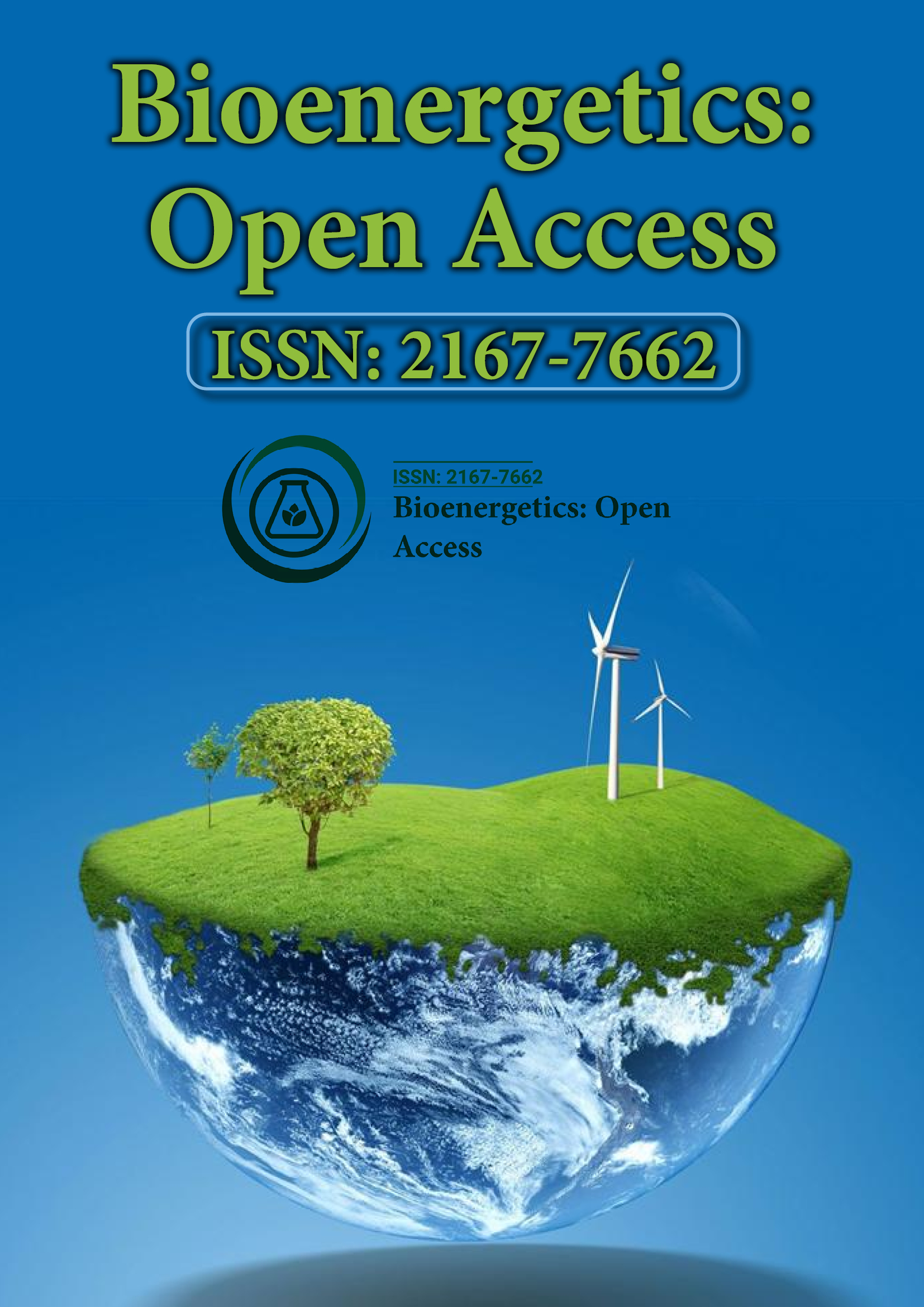Indexed In
- Open J Gate
- Genamics JournalSeek
- Academic Keys
- ResearchBible
- RefSeek
- Directory of Research Journal Indexing (DRJI)
- Hamdard University
- EBSCO A-Z
- OCLC- WorldCat
- Scholarsteer
- Publons
- Euro Pub
- Google Scholar
Useful Links
Share This Page
Journal Flyer

Open Access Journals
- Agri and Aquaculture
- Biochemistry
- Bioinformatics & Systems Biology
- Business & Management
- Chemistry
- Clinical Sciences
- Engineering
- Food & Nutrition
- General Science
- Genetics & Molecular Biology
- Immunology & Microbiology
- Medical Sciences
- Neuroscience & Psychology
- Nursing & Health Care
- Pharmaceutical Sciences
Commentary - (2023) Volume 11, Issue 2
Mitochondrial Respiration and Cancer: Exploring the Complex Relationship in Colorectal and Breast Cancer
Kurt Sten*Received: 22-Feb-2023, Manuscript No. BEG-23-20600; Editor assigned: 24-Feb-2023, Pre QC No. BEG-23-20600 (PQ); Reviewed: 10-Mar-2023, QC No. BEG-23-20600; Revised: 17-Mar-2023, Manuscript No. BEG-23-20600 (R); Published: 27-Mar-2023, DOI: 10.35248/2167-7662.23.11.202
Description
Cancer is a major public health issue worldwide, with colorectal and breast cancers being among the most common types. Mitochondria are key players in cellular energy production, and mitochondrial dysfunction has been implicated in cancer development and progression. Mitochondrial respiration, the process by which cells produce energy, has been extensively studied in cancer cells.
Mitochondrial respiration
Mitochondria are organelles found in eukaryotic cells that are responsible for energy production. The process of mitochondrial respiration involves the conversion of glucose and other nutrients into ATP (Adenosine Triphosphate), the molecule that powers cellular activities. Mitochondrial respiration occurs through a series of biochemical reactions that take place in the Electron Transport Chain (ETC). The ETC is located in the inner mitochondrial membrane and consists of several protein complexes and electron carriers. The process of mitochondrial respiration is tightly regulated and involves the coordination of various enzymes and other molecules.
Mitochondrial respiration in cancer
Cancer cells have been shown to have altered mitochondrial respiration compared to normal cells. In some cases, cancer cells have higher rates of respiration than normal cells, while in other cases, cancer cells have lower rates of respiration. The relationship between mitochondrial respiration and cancer is complex and not fully understood.
Colorectal cancer
One of the most typical cancers in the globe is colorectal cancer. Several studies have shown that colorectal cancer cells have altered mitochondrial respiration compared to normal cells. One study found that colorectal cancer cells had a lower rate of mitochondrial respiration compared to normal cells. The authors of the study suggested that this could be due to a defect in the ETC or a reduction in the number of mitochondria in cancer cells. Another study found that colorectal cancer cells had a higher rate of mitochondrial respiration compared to normal cells. The authors of this study suggested that the higher rate of respiration could be due to increased oxidative stress in cancer cells.
Breast cancer
The most frequent type of cancer among women is breast cancer. Several studies have shown that breast cancer cells have altered mitochondrial respiration compared to normal cells. One study found that breast cancer cells had a higher rate of mitochondrial respiration compared to normal cells. The authors of this study suggested that the higher rate of respiration could be due to an increase in the number of mitochondria in cancer cells. Another study found that breast cancer cells had a lower rate of mitochondrial respiration compared to normal cells. The study suggested that this could be due to a defect in the ETC or a reduction in the number of mitochondria in cancer cells.
Regulation of mitochondrial respiration in cancer
The regulation of mitochondrial respiration in cancer cells is complex and involves the coordination of various enzymes and other molecules. One of the key regulators of mitochondrial respiration in cancer cells is the tumor suppressor protein p53. p53 is a transcription factor that is activated in response to cellular stress, including DNA damage and hypoxia. p53 has been shown to regulate mitochondrial respiration by regulating the expression of genes involved in the ETC and oxidative phosphorylation. Loss of p53 function has been associated with altered mitochondrial respiration in cancer cells.
Another important regulator of mitochondrial respiration in cancer cells is the metabolic enzyme Pyruvate Kinase M2 (PKM2). PKM2 is a key player in the Warburg effect, a metabolic phenomenon observed in cancer cells in which cells produce energy through glycolysis rather than mitochondrial respiration, even in the presence of oxygen. PKM2 has been shown to regulate mitochondrial respiration by modulating the activity of the ETC and oxidative phosphorylation.
Citation: Sten K (2023) Mitochondrial Respiration and Cancer: Exploring the Complex Relationship in Colorectal and Breast Cancer. J Bio Energetics. 11:202.
Copyright: © 2023 Sten K. This is an open-access article distributed under the terms of the Creative Commons Attribution License, which permits unrestricted use, distribution, and reproduction in any medium, provided the original author and source are credited.
